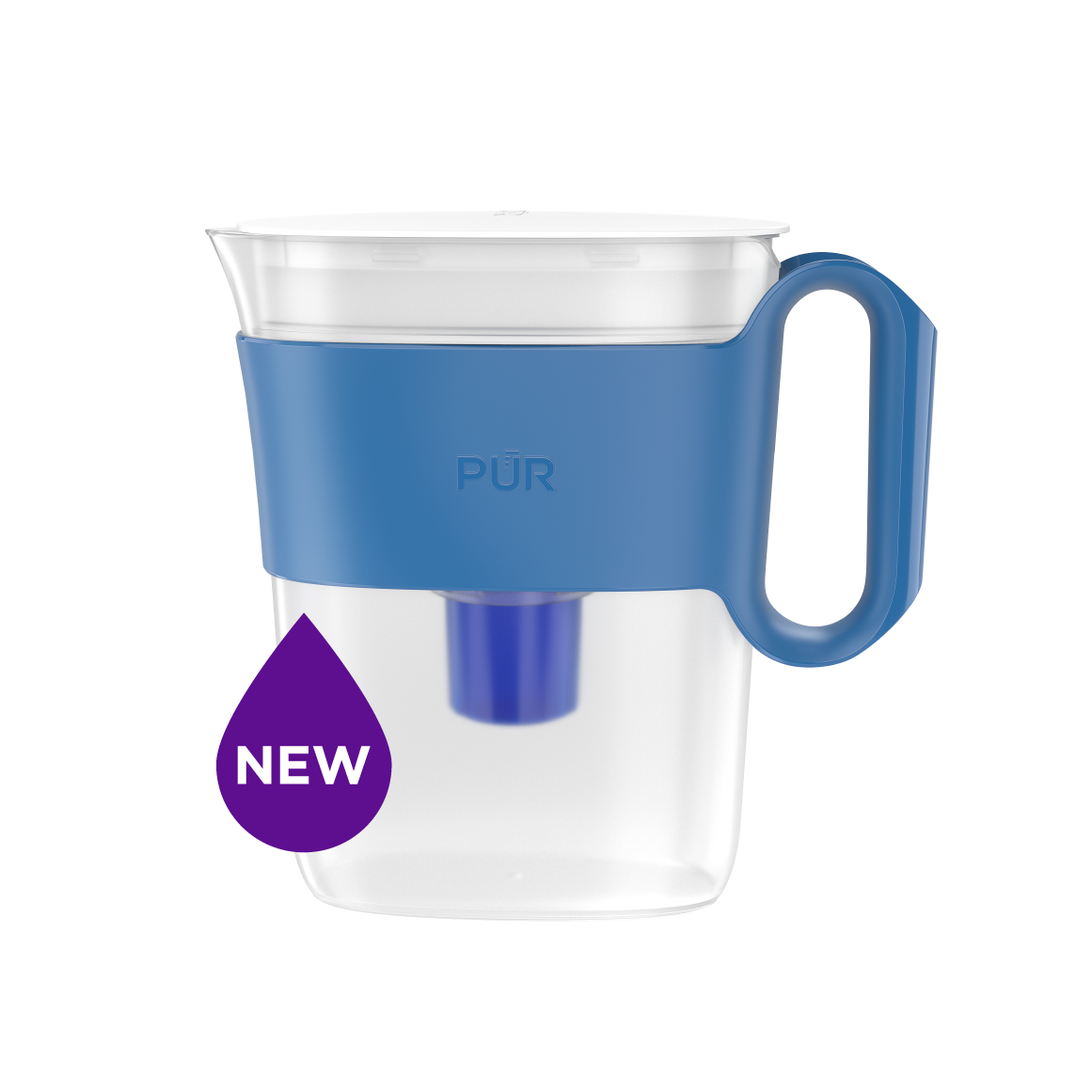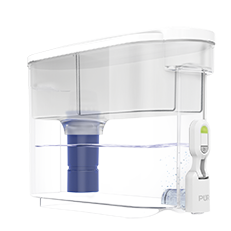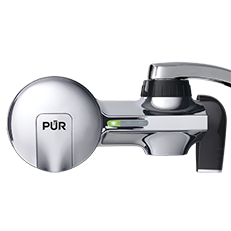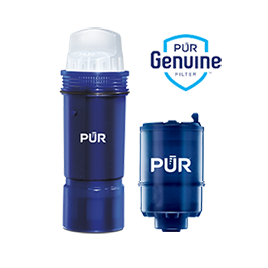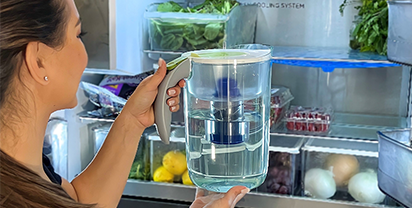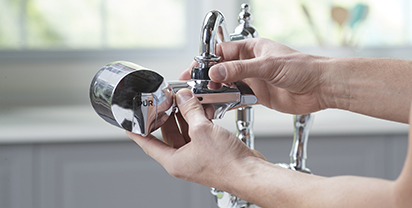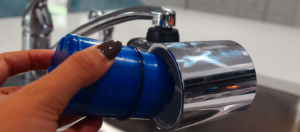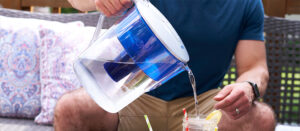Trust PUR Replacement Filters, Because Not All Filters Are The Same
There are few things more enticing on a hot day than a tall ice-filled glass of great-tasting water from your PUR filter. To keep your water cleaner for many years to come, it’s important to change your filter in your PUR faucet filtration system and pitcher every 2 to 3 months.
PUR filters work hard reducing the variety of contaminants that can seep into your water as it works its way through the water system to your glass.* Materials in the filter are designed to adsorb contaminants as the water passes through.* Over time, the pores in the material fill up, diminishing their ability to keep delivering the cleaner water you expect. Many PUR faucet and pitcher filtration systems have filter change lights that turn red to indicate when your filter needs replacing.
When replacing the filter in your PUR faucet filtration system or pitcher, it is important to always use PUR branded filters. There are many universal and no-name branded filters available online and in stores. They might look similar, and claim to save dollar or two, but you can only get superior filtration from PUR filters installed in PUR systems.
4 Reasons to Use PUR Replacement Filters
It’s like they say about beauty, it’s what’s on the inside that counts. A lot goes into every one of our filters. Here are 4 reasons why it’s important to only use PUR replacement filters:
- Years of Research and Testing. For over 30 years, we’ve been developing innovative and affordable technologies for superior water filtration. We put a significant amount of rigorous testing into PUR filter technology to ensure that it meets the highest standards.
- Certified by Leading Water Authorities. PUR filters have been certified by two prominent independent water testing organizations, NSF and the WQA.
- NSF is a public health and safety organization that helps protect the world’s food, water, consumer products, and environment. They set the industry standards and conduct facility audits to evaluate every aspect of a product’s development. PUR pitcher filters have been rigorously tested and certified by NSF to reduce microplastics, chlorine, mercury, copper, zinc and other chemical & physical substances* that can cause bad taste and odor in your drinking water. PUR Faucet filters are certified by NSF to reduce 70 chemical & physical substances*, including lead, microplastics, chlorine and mercury.
- The WQA (Water Quality Association) is the water industry’s trade association. They awarded PUR faucet filters with their Gold Seal certification. The Gold Seal certifies that our filters have passed rigorous testing of industry standards, annual manufacturing facility audits, and comply with all WQA’s requirements
- Filtration Technology. Contaminants that can seep into our water come in varying forms, shapes and sizes.* To make sure PUR filters adsorb most of these substances, we use multiple layers of filtration material within each filter. Our filters contain both proprietary blend of activated carbon and ion exchange materials. As water flows through the filter, contaminants like pesticides and pharmaceuticals are adsorbed by the carbon. In PUR faucet filters, heavy metals like lead and mercury are adsorbed by the ion exchange materials.*
- Perfect Fit. Only PUR filters have been designed to perfectly fit your pitcher or faucet system. A universal filter may look similar and even appear to fit, but small differences and imperfections could allow water to seep around the cartridge without going through the filter… and without you even knowing about it. The industry certifications we’ve received are only for PUR filters used in PUR systems. With generic filters, there’s no way to guarantee the same level of filtration.
At the end of the day — and at the bottom of your glass — filtered water is better for you, your wallet, and the world at large. PUR filters have superior filtration, are affordable, and easy to install.

